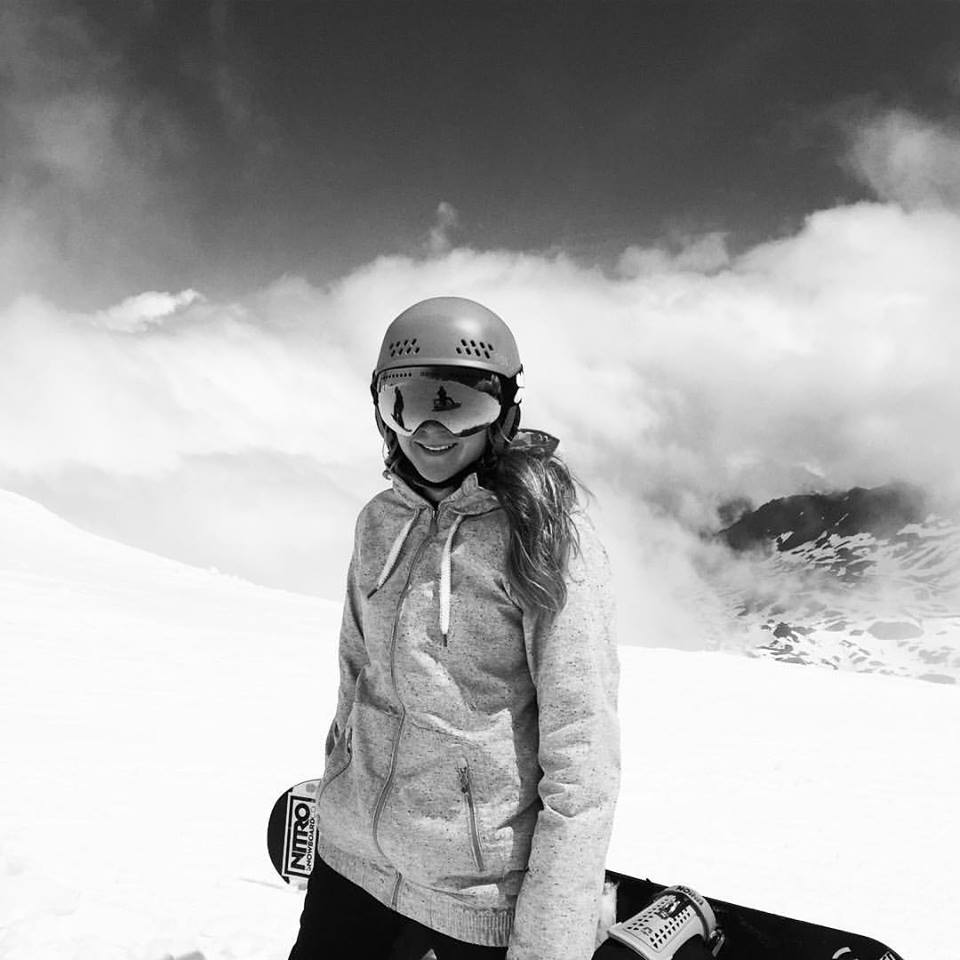The team at Ski in Luxury love hearing from elite athletes and sharing their stories, as they show us that anything is possible. If you, like me, were glued to your television whilst the Olympics and the Paralympics were on and you are equally as excited by the Winter Paralympics then don’t go anywhere. I am lucky enough to be catching up with GB Para-snowboarder Cassie Cava who is hoping to contend for a medal in Pyeongchang in 2018.
Lets hear from the top ranked GB female Para-snowboarder herself on how this incredible journey began, what it took to make it so far and how she is aiming for Gold in Pyeongchang.
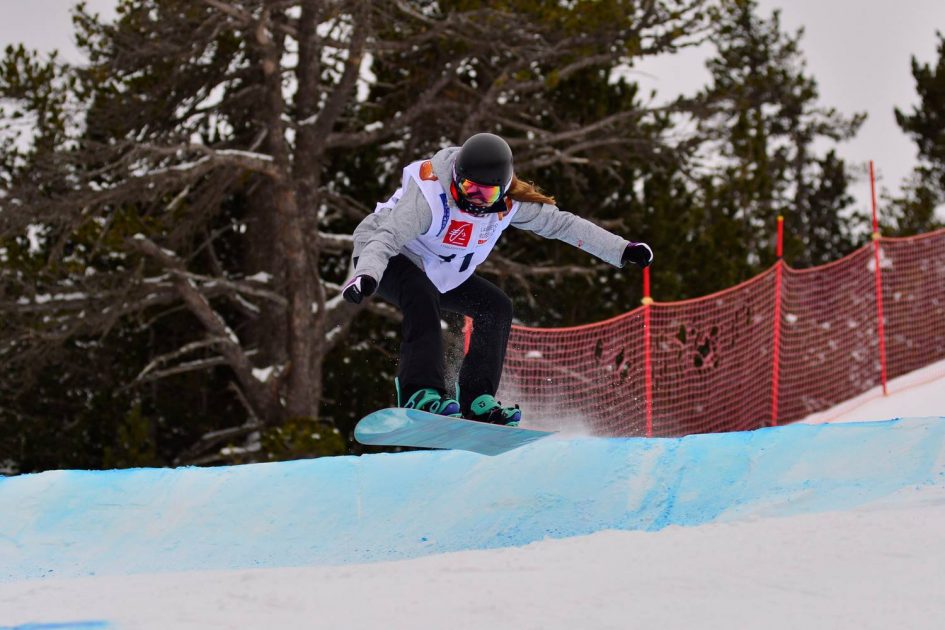
Cassie, I thought we should start at the beginning. So, how and when did you get into Parasnowboarding?
I had my leg amputated below the knee just over two years ago now. I’d done a few ski seasons before that and got back on skis three months after amputation, but was convinced to go on a snowboarding camp with the GB team which was still very much in it’s infancy at that point. It was a big change from skiing and going back to basics was tough – I spent a lot of time on the floor and very bruised. There was a lot of learning to do to figure out how to use my prosthetic leg on a snowboard, but I realised that snowboard racing would be a lot of fun so got some very padded shorts, trained hard, raced in Europa Cup races and then qualified for the World Cup circuit. I’ve had a huge amount to learn and not a lot of time to do it in, but it has been brilliant and I haven’t looked back. There are all sorts of things that crop up along the way, but I’ve got a brilliant team behind me in Pure Sports Medicine, who I train with when I’m at home, and the Sport Institute of Scotland.
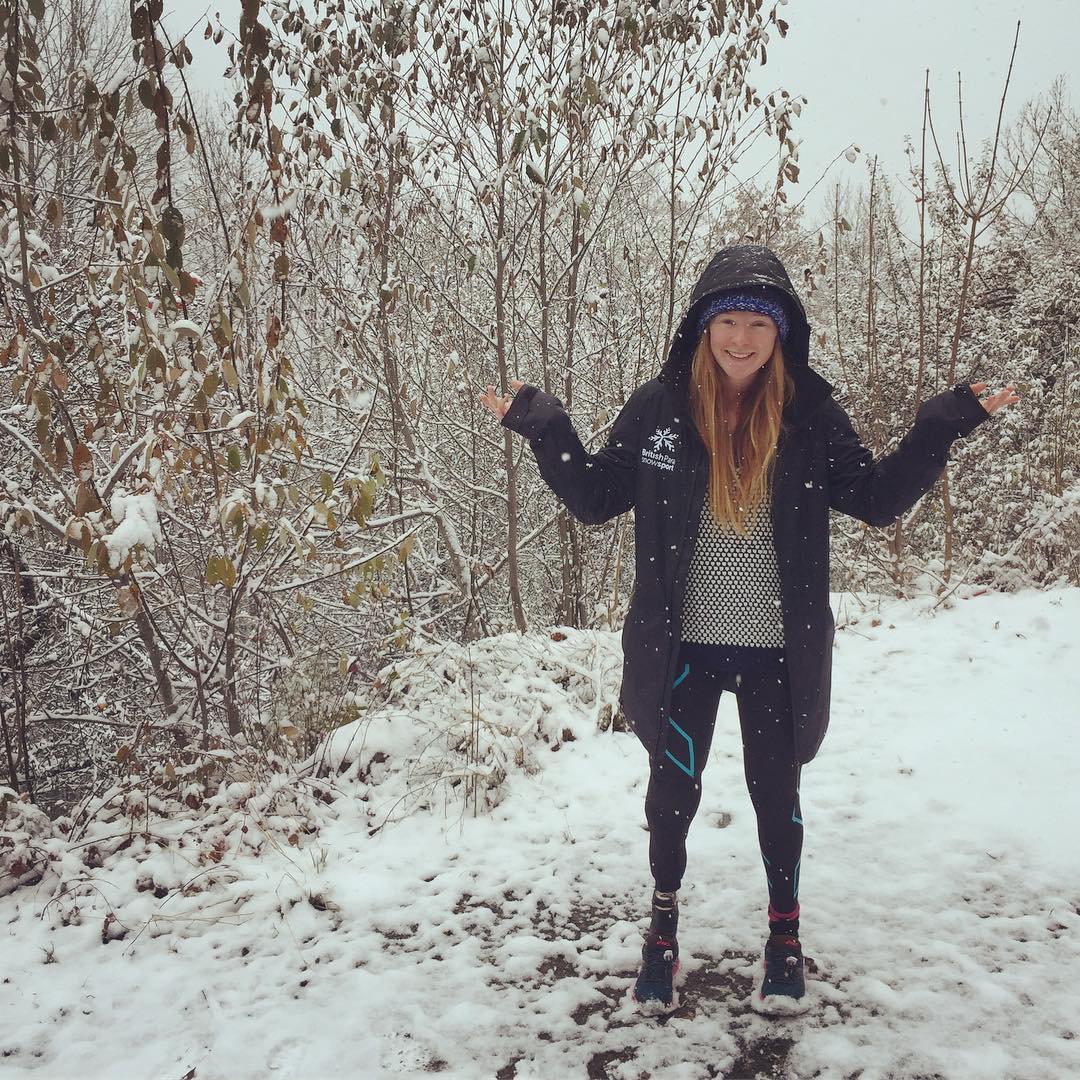
After a number of childhood operations, reconstructive surgery and then a further 5 years of more surgery Cassie decided to take matters into her own hands and make the incredibly brave decision of having her foot amputated. Cassie, I can’t imagine how difficult that must have been. How did you come to the decision?
My doctor told me there was nothing he could do and laughed at my suggestion of amputation, but I knew that there were thousands of amputees out there living active and pain free lives and with my foot in the state that it had got to, that was never going to be a possibility for me. I knew that I hadn’t spent six years going through what I had to just give up at this stage and settle for a life that I knew could have been better. I wanted to be able to wake up in the morning and not dread the inevitable pain. If I have children I wanted to be able to pick them up and not be stuck on crutches. I wanted to do the sports I loved again. For me, whether I had a foot or not was totally irrelevant to that. So I put uni on hold and chose to have my foot amputated. I haven’t quite made it back to uni (yet…) as snowboarding and triathlon got in the way and the opportunities that they are giving me are far too cool to turn down!
Wow! That is incredibly brave. Can you describe the challenges you faced learning to snowboard using your prosthetic leg?
The big challenge initially is not having an ankle that bends. Without any adaptations, my leg would be stuck straight and that would be challenging for any kind of snowboarding, let alone snowboard cross racing, where absorbing through your legs is crucial for landing kickers, going over rollers and carving at high speeds! This is easily overcome by using wedging either in the bindings or boots, giving me some fake ankle flexion, which then means I can bend my knees to get low in a slightly different way. My knee and ankle in my real leg aren’t aligned straight, but by twisting the bindings inwards, seemingly putting my foot in a strange position, my knee can move in a moreorless normal range to get performance from the board. The main day to day issue for me is the fact that part of my leg that isn’t built for taking any weight is taking all of my weight! This leads to sores, blisters, bruising (and a chipped tibia in September!) if my socket fit is anything other than perfect, but a few days on crutches and some tweaks to the socket and I’m normally good to go again.
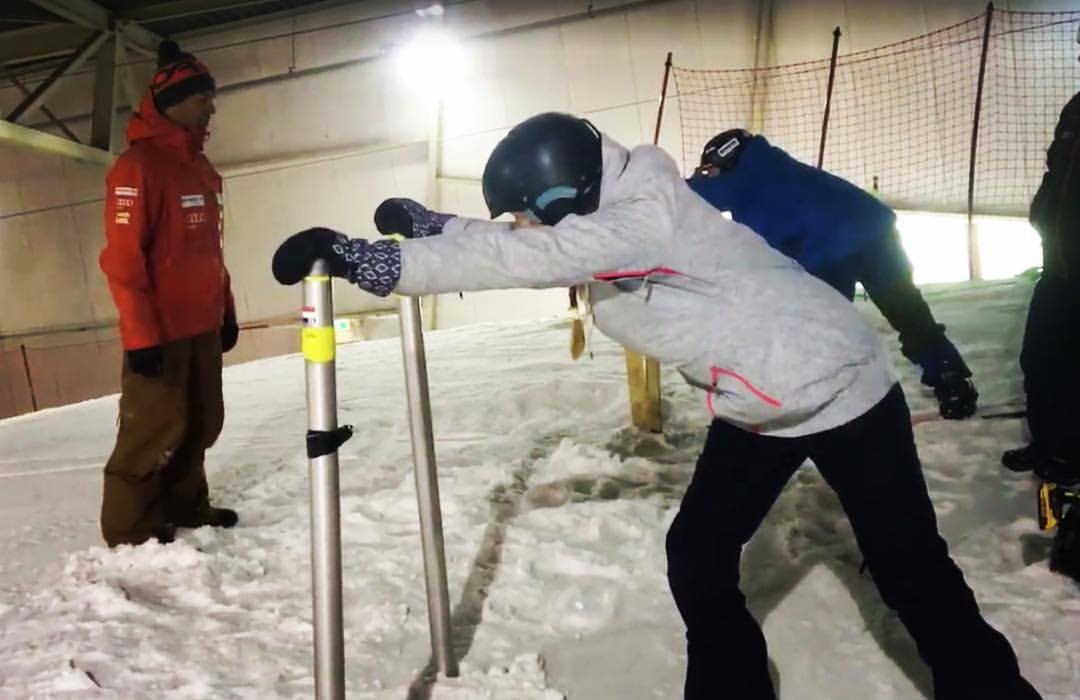
For a lot of people out there they won’t have heard of Para-snowboarding. Can you explain to them what it involves?
In para-snowboarding at the moment we race Snowboard Cross (SBX) and Banked Slalom. SBX is my favourite – we race head to head in heats and the courses include kickers, rollers and other obstacles so it’s a lot of fun and very fast! When I’m stood in the gate at the top of a course, the fact that I’ve got a prosthetic leg doesn’t cross my mind for a second, it’s totally irrelevant. It’s all about getting down that course as fast as possible and any preconceived ideas of so called disability go totally out the window – we look like anyone else racing and you wouldn’t think for a moment that under those trousers there are some pretty incredible works of engineering going on!
For people out there who didn’t think snowboarding was possible with their disability but now want to give it a go what would you suggest?
I’d strongly encourage them to give it a go! I think a great way to start is getting in touch with Disability Snowsport UK and having some lessons at an indoor snow centre. Having both feet strapped down and together means that you can compensate for a lot of weaknesses and imbalances, so for people with things like cerebral palsy, clubfoot, other muscular conditions etc. I think snowboarding is perfect! Until you’ve got the basics you’ll spend a lot of time on the floor, but after that it’s a lot of fun, especially if you like going fast! Someone who finds walking challenging and tiring can suddenly be very free on a snowboard to fly around the mountain and that’s wonderful to see.
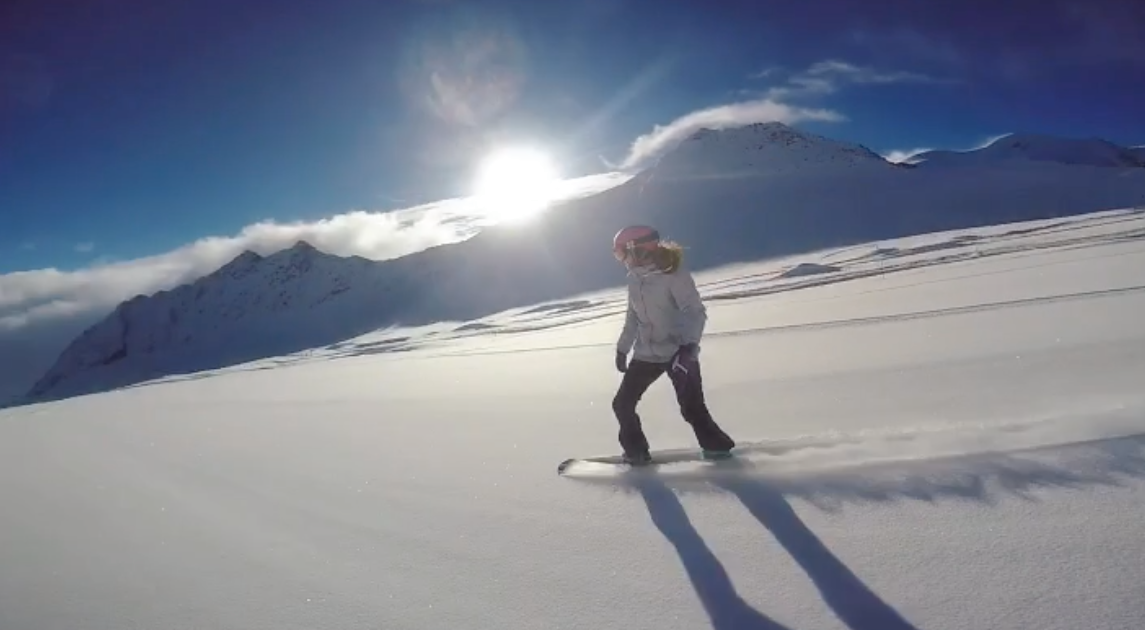
Which resorts do you think have the best infrastructure for disabled snowboarders/skiers?
I train in Tignes as much as possible because the L’Espace Killy is a huge ski area and the off snow training facilities are world class. As a purpose built resort, accessible accommodation is more commonly available and everything is easy to get to and close by – very important when you need to pop out to get some milk in the evening but can’t put your leg on! However sometimes smaller places may be better if you need help getting on and off lifts and the lifties can get to know you a bit, but I haven’t ever been somewhere that people aren’t willing to adapt to try and help!
What’s next for you?
I’m about to go into my second season racing on the World Cup Para-snowboard circuit. I finished my debut season ranked 7th in the world and have had a brilliant summer of training hard in the gym, on kickers, in gates and in courses and am very excited to start racing this season and see what I can do!
My main goal and focus currently is getting to the 2018 Winter Paralympics in Pyeongchang and medalling. This winter I will race World Cups in Holland, France and Spain, before heading out to Canada for the World Championships. I then hope to race at the Paralympic Test Event in Pyeongchang, which doubles up as World Cup Finals this season. I hope to finish consistently in the top 5 and be challenging for podium places by the end of the season. I’m on the GB Para-triathlon Talent Squad too and aim to make back to back Paralympics in 2018 and 2020, and hope to medal at both.
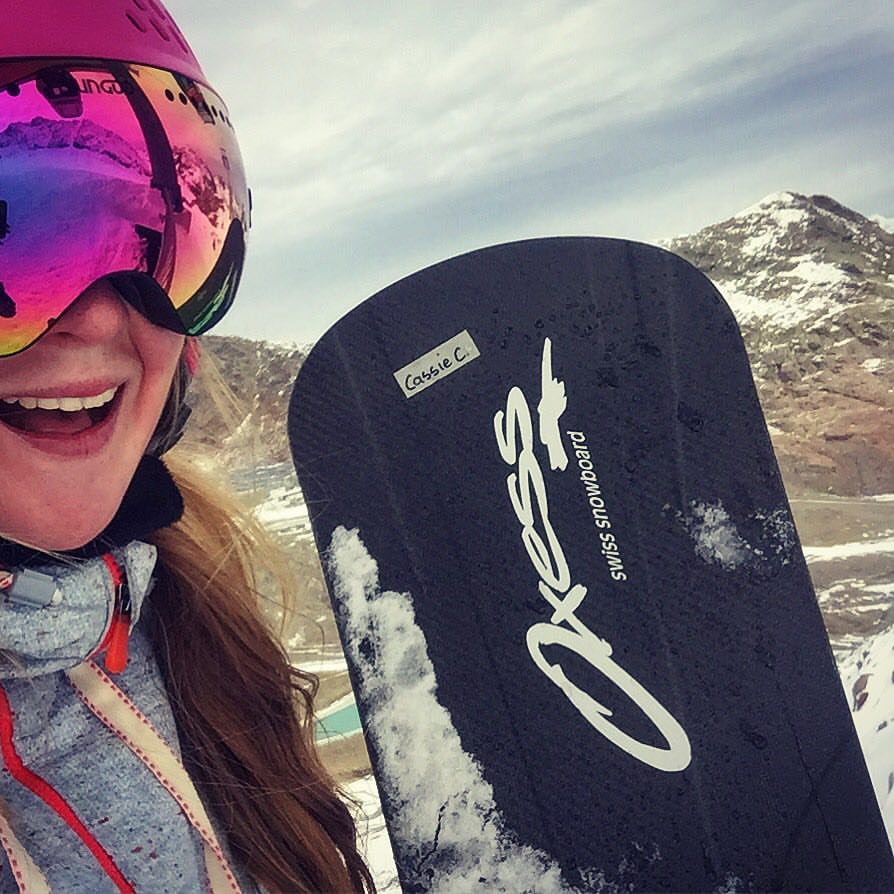
After Rio, people are more aware than ever about the costs of getting to events, let alone the Paralympics. If any of our readers want to donate to help make your dream to reach the 2018 Paralympics become a reality, how can they do this?
Snowsports are expensive in general (as I’m sure you all know!) and to train and race over a season I need a minimum of £20,000. I have an unbelievable opportunity this season to put myself into a position where I can be competitive for medals at the Paralympics in 2018, if I can train smart and hard and race at every World Cup, therefore fulfilling my potential for the season. I’m fundraising at www.makeachamp.com/cassiecava to try and do this. If you can help out in any way, I would be enormously grateful.
Wow! I am sure you will agree that Cassie is an inspiration to us all. If she has inspired you to head out to the Alps this winter to try something new or even get back into snowboarding or skiing then head to Ski in Luxury to check out all our stunning luxury chalets. Or why not give us a call on +44 1202 203650 or send us an email.
